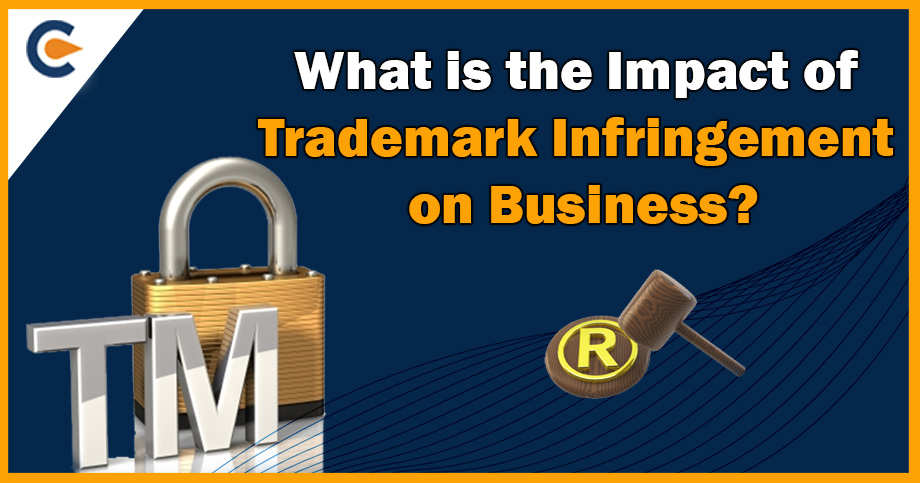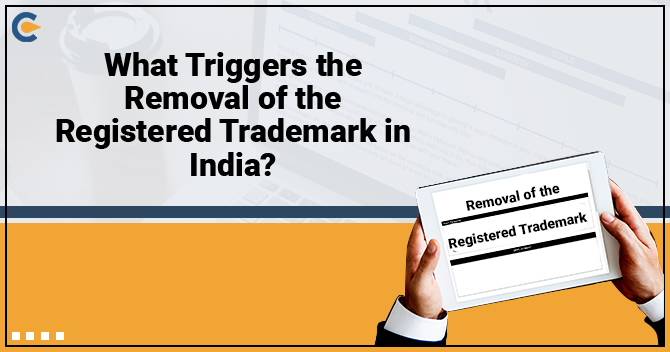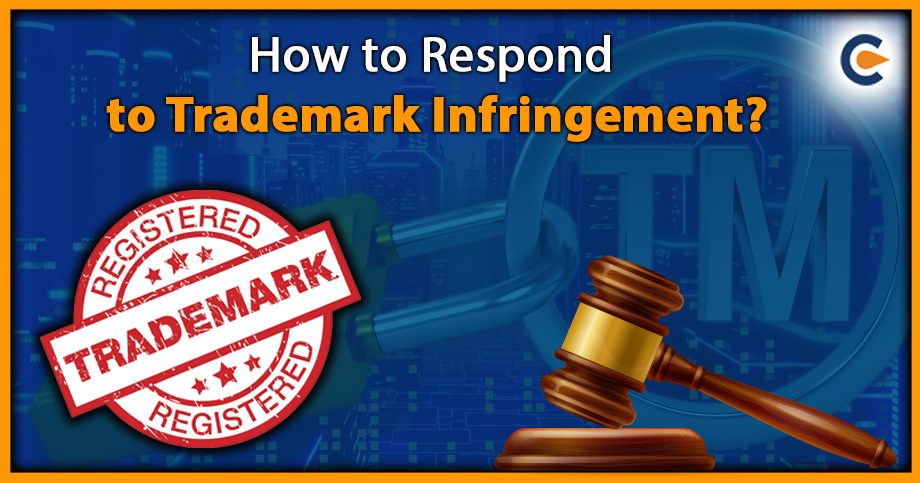Trademark law has a long and rich history that dates back to ancient times. In ancient Greece and Rome, traders used trademarks to identify their goods from those of their competitors. During the Medieval Ages, guilds and other organizations used marks to distinguish their goods. Trademark law has developed throughout time to reflect the changing nature of business and the growth of the global marketplace. In this blog, we will discuss the impact of Trademark Infringement on Business.
What is Trademark?
Before we discuss the impact of Trademark Infringement in Business. Let’s discuss the meaning of a Trademark. A trademark is a well-known and legally recognized mark that distinguishes a manufacturer’s distinct goods or services. The owner of the mark can seek trademark protection. But, the trademark protection can only be done if you are utilizing the mark in commerce on a regular basis. A trademark can be a logo, symbol, title, stamp, label, word or phrase or combination of all. The trademark acts like a unique identifier that sets your brand apart from the rest. It acts like a signature of the business. The trademark is essential because they assist consumers in identifying and recognizing your goods or services, which can be a significant advantage in today’s competitive industry.
The definition of trademark is stated under Section 2(1) (i) (viii) (zb) of the Trade Marks Act, 1999. According to this definition, the trademark is basically a graphically represented mark which is able to distinguish the goods or services of one person from another. The Indian Patent Office, which is administered by the Controller General of Patent, Designs and Trademarks, is the entity that is responsible for handling trademark protection in India.
What is Trademark Infringement?
Unauthorized use of a registered trademark or mark that is confusingly similar to the mark that is being used to sell the goods or services is referred to as trademark infringement. Using a trademark in a way that might lead consumers to believe the goods or service they are buying is connected to or endorsed by the trademark owner constitutes as a trademark infringement. As a result, the reputation of the trademark owner may suffer grave damage, there may be a decline in sales, and the trademark’s value may be diminished. Thus, it is essential that businesses act proactively to safeguard their registered trademark and stop third parties from violating their intellectual property rights.
Types of Trademark Infringement
There are two types of trademark infringement:
- Direct Infringement
The use of a trademark that is identical or confusingly similar to a registered trademark without the owners’ consent is direct trademark infringement. Direct trademark infringement is a violation in India and is punishable under the Trademark Act 1999[1].
The plaintiff must demonstrate that the defendant has used a trademark that is either identical or confusingly similar to the plaintiff’s registered trademark in order to show direct trademark infringement. The unlawful usage must be carried out in the course of business or commerce. It must be associated with the purchase, offer for purchase, distribution, or advertisement of products or services. The unlawful use must be made without the consent of the trademark owner. The use of the infringing trademark must be likely to cause confusion or deception among consumers.
- Indirect Infringement
A third party utilizing a trademark that is identical or confusingly similar to a registered trademark without the consent of the owner is known as indirect infringement. The third party is aware of the registered trademark and is still carrying out the activity. The third party is providing the assistance or support to the infringing activity, either directly or indirectly. The third party benefits from the infringing activity in some way, either financially or otherwise.
Impact of Trademark Infringement on Business
Businesses may suffer severely from trademark infringement in terms of finances and reputation. A business utilizing another person’s registered trademark without their consent or authority is said to be infringing on that person’s rights. Consumers may become confused as a result, which might harm the reputation of the trademark owner. Due to the resemblance in branding, consumers can be drawn to the infringing goods or services, which might result in the owner losing revenue.
In addition to harming one’s reputation, trademark infringement on Business can result in expensive legal disputes. Businesses can be forced to invest a lot of time and money defending their trademark rights in the court. Small businesses, in particular, may suffer since they might lack the resources to sustain a prolonged legal dispute.
In some circumstances, trademark infringement even results in the forced closure of a business. Businesses can be forced to stop operations and pay penalties to the trademark owner if they are found to be violating a registered trademark. This can be devastating for the business, especially if they have spent a lot of time and money developing their brand.
How to Protect Your Registered Trademark from Trademark Infringement?
After you have spent time, money, and other resources creating a distinctive trademark, protecting it becomes crucial. The registration of a trademark is one of the most critical procedures in protecting the trademark. But more than merely registering a trademark is required. The trademark owner has to protect the trademark from infringement actively. The following are some effective methods to protect the registered trademark:
- Conducting A Trademark Search:
Be sure that there is no identical trademark already in use before registering the trademark by doing a comprehensive search. This will assist in averting future infringement concerns and potential legal disputes.
- Monitoring And Enforcing The Trademark Rights:
Keep tight checks on the trademark after you have registered to be sure that no one else is using the same without authorization. If you become aware of any possible violations, act immediately to prevent further use.
- File A Lawsuit Against The Infringers:
If someone violates the trademark, file a lawsuit right away. Enforcing your trademark rights sends a clear message that you take the trademark seriously.
- Educate Your Partners And Staff:
The partners and the staff of the business must be educated about the importance of trademark protection. By doing this, you can make sure that everyone is on the same page and is protecting the trademark.
- Be Vigilant In Monitoring The Trademark:
Staying vigilant and regularly monitoring the trademark helps in searching for new trademarks that could be confusingly similar or identical to yours, and keeping an eye on social media, as well as websites and other platforms, also helps.
Penalties for Trademark Infringement
The punishment for infringing a trademark is an imprisonment for a period of not less than six months, which can be extended to three years. A fine which is not less than Rs 50,000 that can extend to Rs 2 lakh.
Case Law under Trademark Infringement
InLaxmikant V.Patel v/s Chetanbhat Shah & Anr AIR 2002 SC 275, it was stated that -“The legislation prohibits anyone from operating their business in a way that would lead consumers to believe that the goods or services they are buying are actually theirs or somehow connected to him.”
Conclusion
In conclusion, protecting your registered trademark is essential for the business’s success. The reputation and profits may suffer significantly from trademark infringement. By conducting a trademark search, filing for trademark registration, and monitoring and enforcing your trademark rights, you can protect your brand and prevent others from using it without permission. It’s also essential to train the staff and business partners, keep monitoring your trademark and take legal action whenever required. The business can be protected, and it can be ensured that the trademark remains a valuable asset. Consult a knowledgeable lawyer who specializes in intellectual property law for guidance.
Also Read:
Introduction To Suit For Trademark Infringement
Filing Trademark Under Wrong Class: What Are Its Repercussions?
How Can You Apply For Online Trademark Registration In India?











